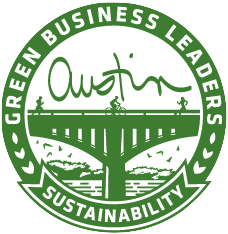Cooper Askins is a science teacher at Fulmore Middle School in Austin, Texas. Cooper’s appreciation of EcoRise is linked to his experiences living and teaching in Tanzania. Seeing a population that lacked fresh water and sufficient food, one without a sustainable approach to its resources, galvanized him to teach ecology and sustainability to young students.
Cooper believes middle school adolescents are the perfect age for learning skills they will need as young adults. He believes in teaching with a direct, hands-on, inquiry based approach, which is what drew him to the curricula of EcoRise Youth Innovations. Cooper likes the way the program, “gives students the scaffolding and background information about environmental ecology and challenges them to apply what they have learned to creating solutions to real life problems.” He notes that businesses and higher education institutions are interested in students and young people who have already practiced taking a project from beginning to end, which is an important part of what EcoRise provides.
 Cooper’s method is first to deconstruct the students’ beliefs about the environment by discussing challenges like water scarcity, increased waste and the need for improved waste disposal methods, the need for increased food production but simultaneously, the difficulties involved with large agricultural operations. Just when his students start to think the problems are too daunting, Cooper leads them to consider how they can help solve these challenges as creative, both as innovative individuals and as members of the community. Cooper’s students learn they can have an impact and make a positive difference.
Cooper’s method is first to deconstruct the students’ beliefs about the environment by discussing challenges like water scarcity, increased waste and the need for improved waste disposal methods, the need for increased food production but simultaneously, the difficulties involved with large agricultural operations. Just when his students start to think the problems are too daunting, Cooper leads them to consider how they can help solve these challenges as creative, both as innovative individuals and as members of the community. Cooper’s students learn they can have an impact and make a positive difference.
The goal of teaching this way is to change how students look at the world around them. Cooper encourages them to make this new knowledge part of their future. Helping students understand their personal dietary habits is a good example of how this works. Cooper asks his students to read labels to see where food products originate, what has been added, and how their own health is affected by what they are eating. Once they have understood this, they carry the information home to their sisters, brothers and parents. They, in turn, become change-agents in their homes and communities.
Cooper observes that of all the problems he encounters as a teacher, the biggest challenge is “letting go,” releasing the reins and allowing students to move forward and find their own solutions. “It is especially difficult when you get a student who doesn’t take the bait, who doesn’t move,” he says. “But if you allow them the space they eventually do catch on, and often end up creating amazing projects, because they have been empowered and they ‘own’ their creation. It’s a unique experience for them, and sometimes it is the first time in their lives this has happened. This is an appropriate and effective way to teach an adolescent.”
Gina LaMotte, Founder and Executive Director of EcoRise Youth Innovations remarks, “Cooper Askins is one of our most popular and effective teachers. His leadership has been an inspiration not only to his students and to Fulmore Middle School, but to the entire EcoRise team.”




